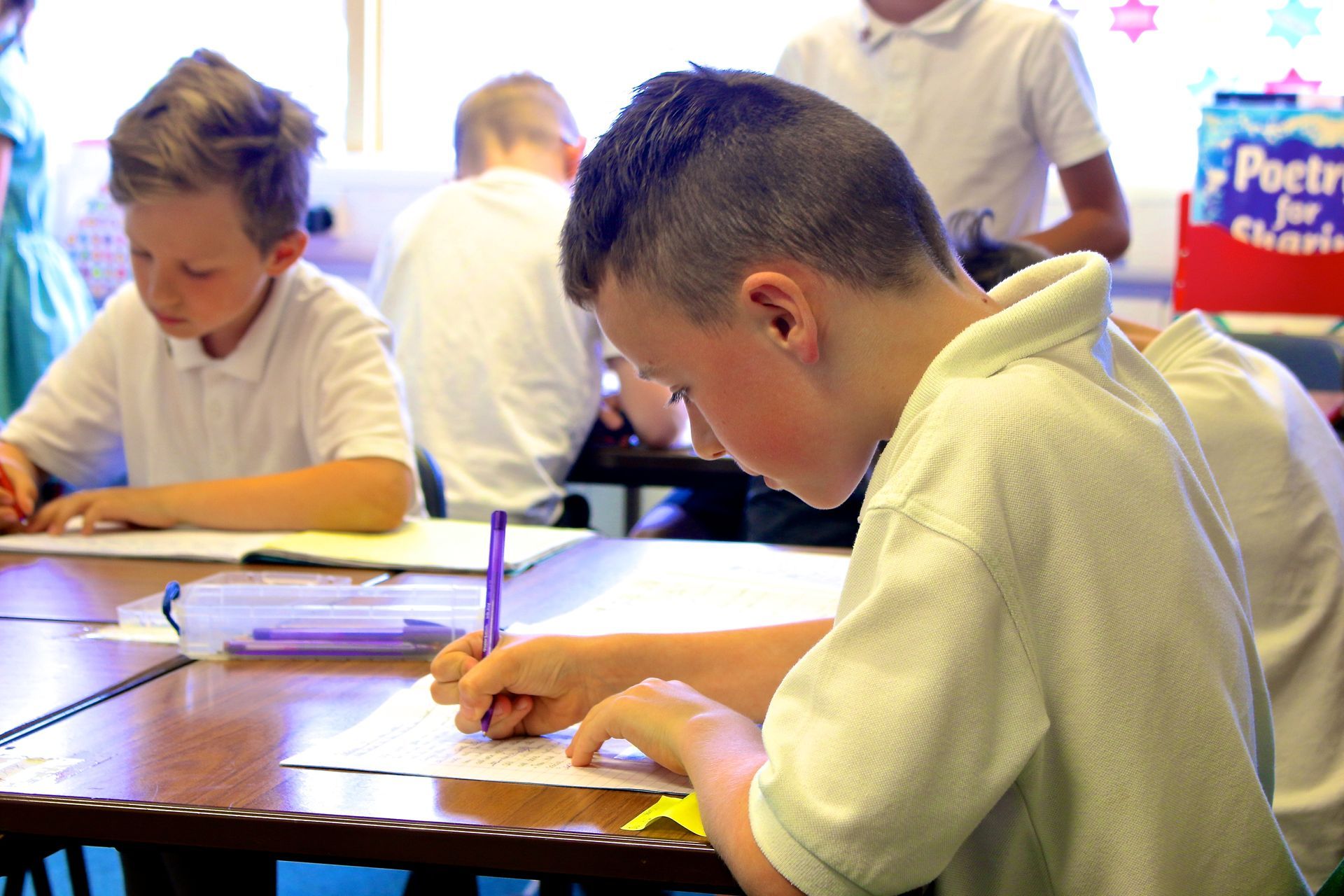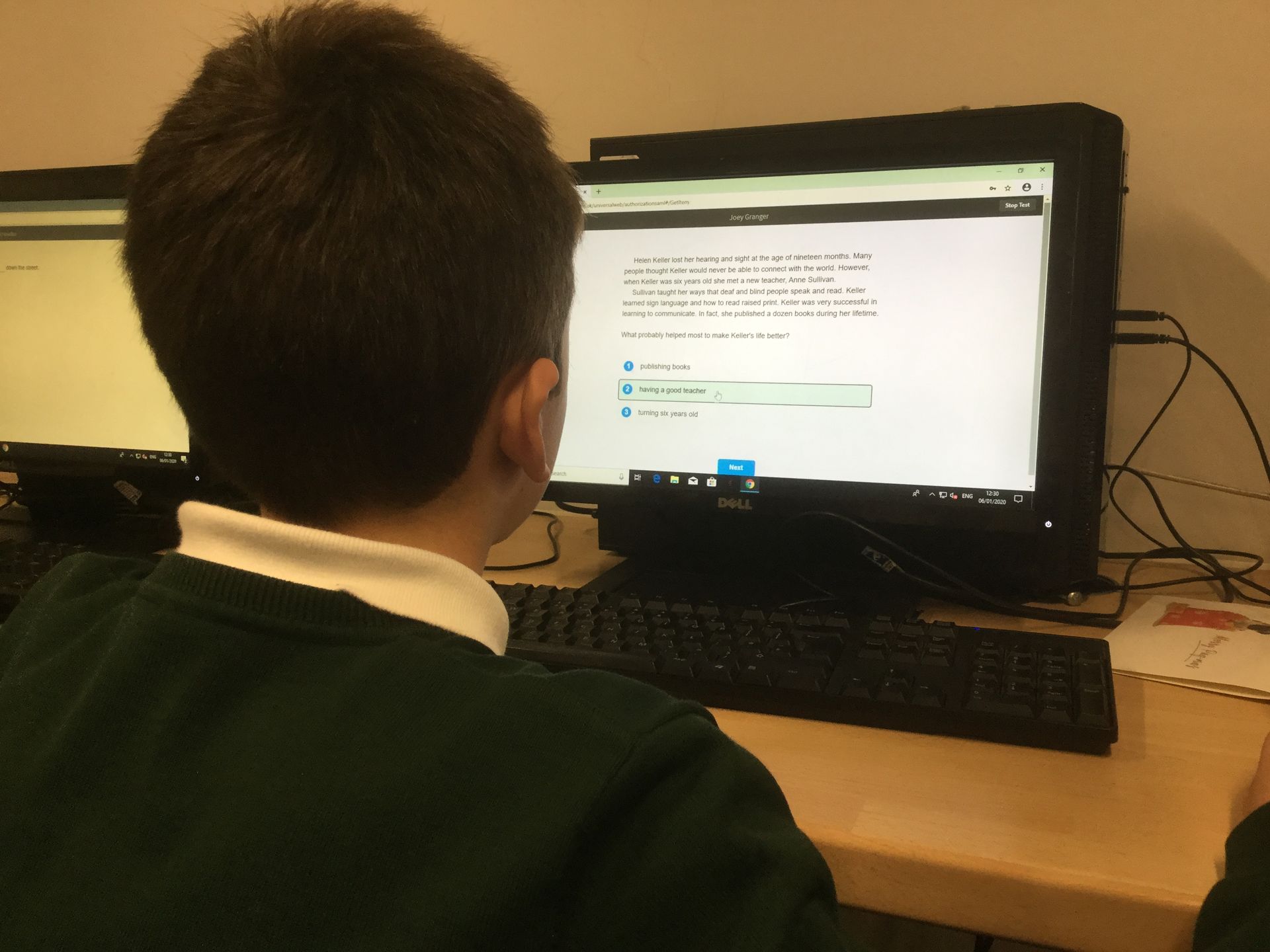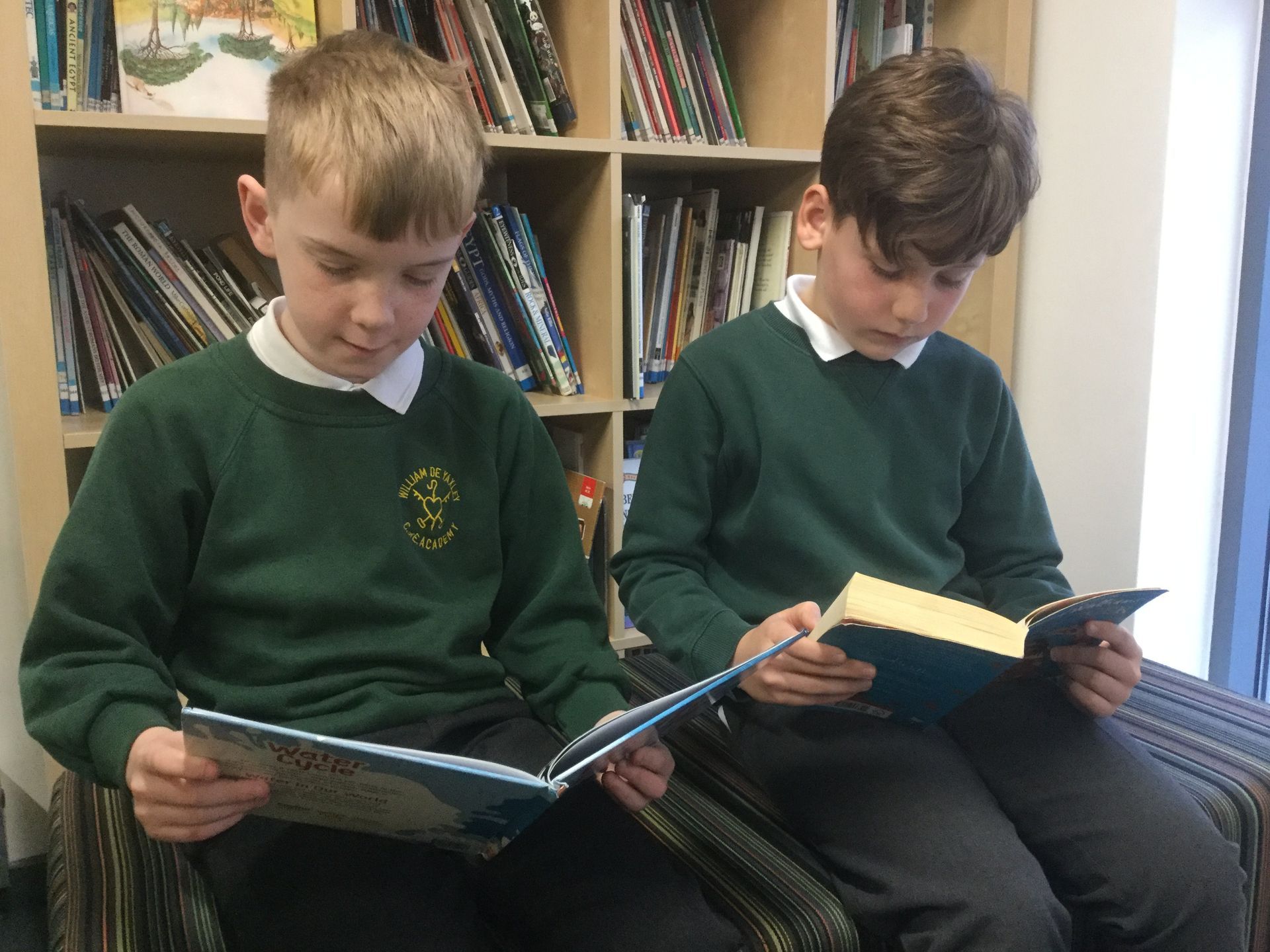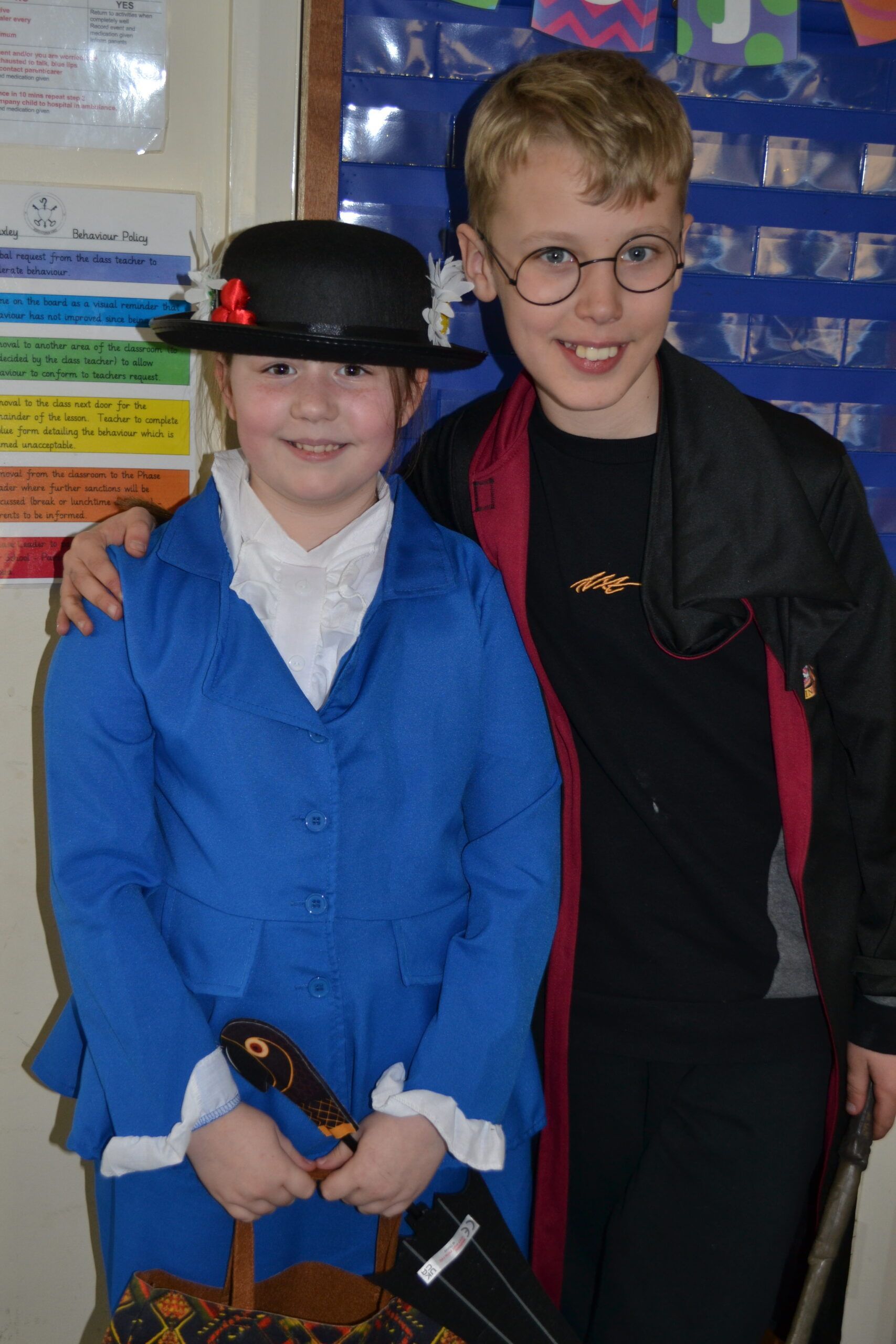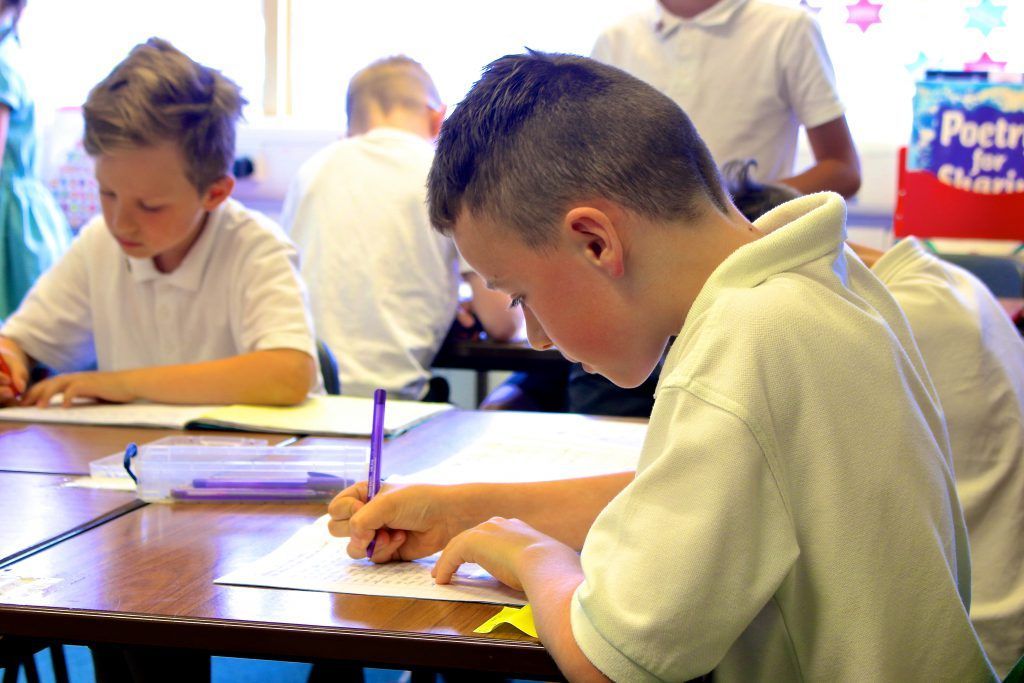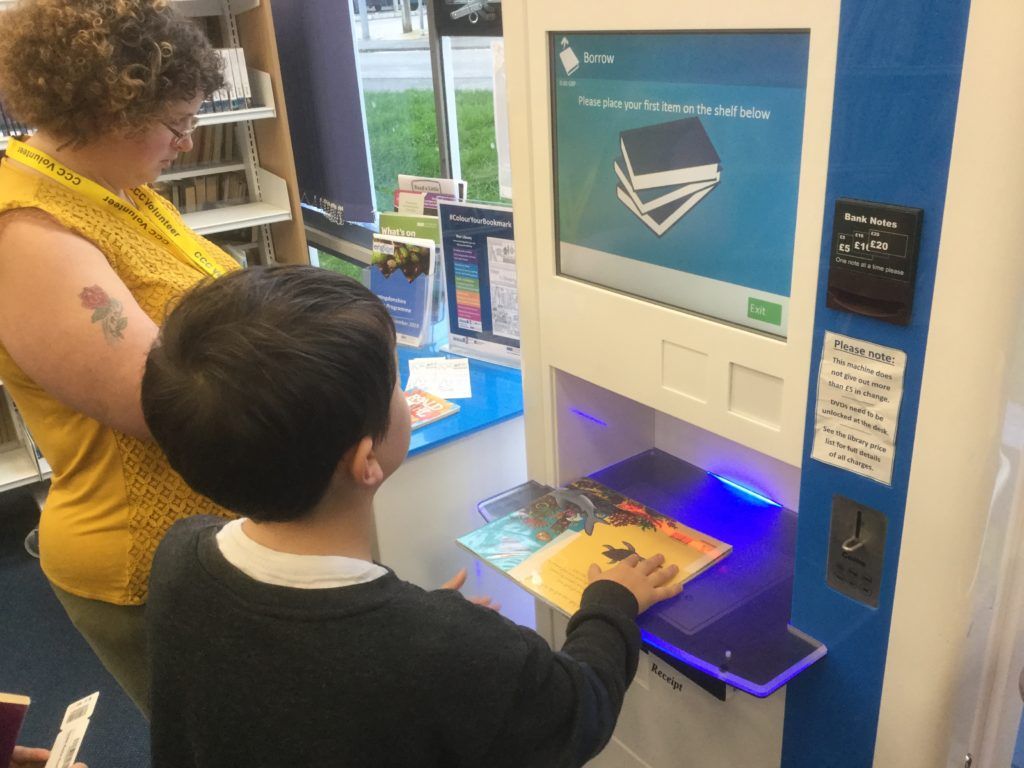
English
At William de Yaxley we believe all our children are entitled to an ambitious, knowledge-rich English curriculum that ensures they will become fluent readers and writers who are able to confidently access the demands of the secondary school curriculum. Our English curriculum is driven by a canon of culturally important, high-quality texts. This is the stimulus for all our reading and writing. We have chosen texts which lead to the development of the personal and cultural capital of our children. We believe that in order for them leave William de Yaxley as successful learners, they need to have knowledge of a range of these texts.
Our English Teaching and learning involves the four elements of English: Speaking, Listening, Reading and Writing. At William de Yaxley we want our children to become:
- Confident speakers in a variety of situations;
- Good listeners;
- Readers who enjoy all sorts of stories, poetry, plays and information;
- Writers who have the skills to write for different purposes and audiences.
“Leaders place high importance on reading. They encourage pupils to read widely, through rewards and incentives. Pupils are enthusiastic about reading. They discuss the range of books they enjoy and their favourite authors.” Ofsted 2020
Writing
Writing is probably the most complex process that we ask children to perform. A runner does not learn to run a marathon by running long distances at the beginning of their training; they build up slowly and develop their running technique over time. Equally, a pianist must learn and practice scales repeatedly in order to perform complex compositions. In the same way, children need to learn basic grammatical skills to automaticity before they can confidently compose extended pieces of writing to a high standard. At William de Yaxley we focus on teaching six text types: recount, report, instructional, explanation, discussion, and persuasive texts. The text types are introduced and revisited in a specified sequence to reduce cognitive load. Additionally, the core grammar knowledge for each phase (LKS2 and UKS2) is specified and carefully sequenced so that children have plentiful opportunities to learn the skills and practice them to automaticity. Once children are ready to apply these skills, they draft extended pieces. The writing outcomes are based on content from the text read and discussed in the whole class reading lessons or from previously taught content in foundation subjects. Again, this is to ensure the focus is on thinking about grammar, punctuation, and vocabulary choices, rather than making up content, which is something children do naturally when we use rich texts.
Our children plan what they are going to write. This planning process begins with identifying the purpose for writing – to entertain, to inform, to persuade or to discuss. The skills needed for each writing purpose are built and the children have time to practice and consolidate this learning. Children are taught explicitly how to plan their writing and extensive time is spent re-drafting, so that all children carefully consider the choices they are making. This ensures that every child can become a competent and successful writer. We believe in improving the writer not improving a single piece of writing. The cycle of drafting, responding to feedback and redrafting is repeated until children publish a piece of extended writing. This enables the taught grammar and punctuation to become embedded, so that children think carefully about their language choices and apply this in new pieces of writing across the curriculum. The true assessment of a child’s writing ability comes when teachers observe how they are applying the English learning in other curriculum areas, as well as future English writing.
Spelling at William de Yaxley CE Academy
At William de Yaxley CE Academy, our ultimate aim for writing is that children become fluent in written communication. By doing this, we will help them develop the skills and attitude to succeed in this school, in Key Stage 3 and beyond. One important aspect of this to be able to spell correctly.
We teach children to decode and spell using the Sounds Write phonics programme. This is a linguistic phonics programme that teaches children sound-spelling correspondences across the four years they are with us. Rather than learning spelling rules, which have many exceptions and contradictions, children learn and apply sound-spelling correspondences (the extended code) in their reading and writing. The linguistic phonics approach looks at the relationship between the spoken language and the written word. Children study three main skills to enable them to learn to read: blending (the skills of blending letters together), segmenting (separating sounds for spelling) and phoneme manipulation (swapping sounds to develop reading accuracy).
Throughout the school, children study etymology (the origin of words), which enables them to discover the meaning of new words and apply their code knowledge.
All teachers receive extensive Sounds Write training to support them to deliver the linguistic phonics lessons. The programme is highly-specified, carefully sequenced and code knowledge is revisited so that it is taught to be remembered.
Phonics is taught to the whole class. Children who need additional support still join in with the whole class sessions. However, for those children who need support in addition to the whole class lessons, a Phonics Intervention is used. This approach ensures children are able to catch up quickly.
When children are not sure of how to spell a word, all children need to use their knowledge of phonics to break down a word.
All teachers take opportunities for children to recall spelling rules and patterns during Shared and Guided Reading and Shared Writing.
Reading at William de Yaxley
At William de Yaxley CE Academy, we believe all our children are entitled to an ambitious, knowledge-rich English curriculum that ensures they will become fluent readers and writers who are confidently able to access the demands of the secondary school curriculum. Our English curriculum is driven by a Reading Canon of high-quality, carefully selected texts, which lead to the development of the personal and cultural capital of all of the children at William de Yaxley.
It is important that the children read regularly. A child who reads regularly, supported and encouraged by the adults in their lives, will become more successful at reading. Reading fluently and with understanding is essential to children’s future success.
At William de Yaxley, we support children to build their reading miles by reading daily. For some children, this means reading more than once a day

